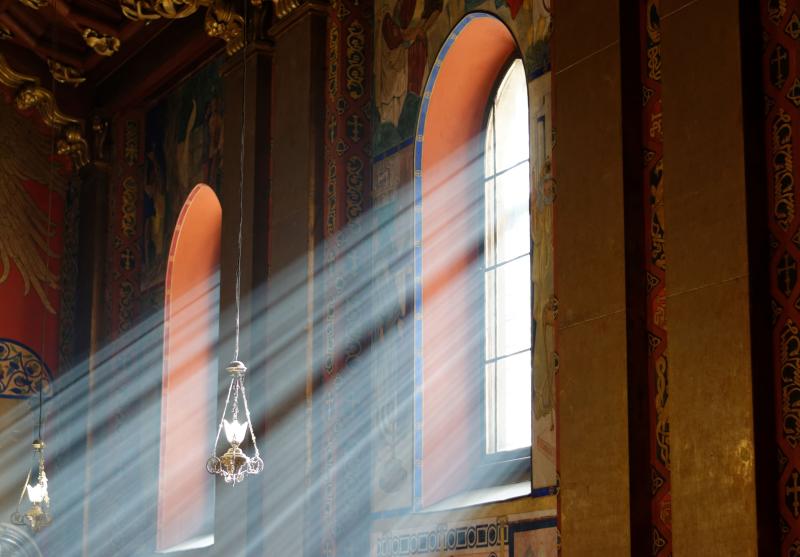
Catholic Mobilizing Network opened its doors in 2009 with a mission to end capital punishment, grounded in the anti-death penalty teachings of the Catholic Church.
Even though these were teachings that the U.S. Church, guided by the United States Conference of Catholic Bishops, had upheld and amplified for decades, there remained some slight ambiguity.
At the time, the Catholic Catechism laid out that, given the ability of modern means of justice to protect society, legitimate uses of the death penalty for the purpose of safeguarding the community were “very rare.”
But this wording left some confusion in Catholics’ minds (chief among them, what qualifies as “rare”?). In the U.S., the ambiguity even led some to the misguided belief that the Church endorsed the executions that were still taking place by the dozens every year.
But on August 2, 2018, that changed.
Five years ago today, Pope Francis ushered in the historic revision of the Catechism of the Catholic Church’s teaching on the death penalty, officially promulgating a clear and firm stance against capital punishment in all cases.
"The Church teaches, in the light of the Gospel, that 'the death penalty is inadmissible because it is an attack on the inviolability and dignity of the person,' and she works with determination for its abolition worldwide." (CCC 2267)
Although it was indeed a change of language, this revision was far from unprecedented. It was rooted in a legacy of papal teaching against capital punishment, and reinforced by the Catholic belief that all life is sacred.
Yes, even the lives of those who have been sentenced to death.
The road to “inadmissible”
The 2018 revision was not the first time that a pope strengthened the Catechism’s teaching against the death penalty. In 1997, the section was adapted to include the words of Saint Pope John Paul II from his 1995 encyclical, Evangelium vitae. The teaching at the time defended the death penalty only as an absolute last resort, in instances where it was the only possible way to protect society. Saint Pope John Paul II added that such instances were “practically nonexistent.”
Saint Pope John Paul II consistently affirmed this teaching, defending that capital punishment was “cruel and unnecessary.” In 1999, he called for a “consensus to end the death penalty.”
Twelve years later, Pope Benedict XVI echoed that petition saying, "I draw the attention of society's leaders to the need to make every effort to eliminate the death penalty."
It was Saint Pope John Paul II whom Pope Francis quoted when denouncing capital punishment in his 2020 encyclical, Fratelli Tutti, saying that his predecessor had “stated clearly and firmly that the death penalty is inadequate from a moral standpoint and no longer necessary from that of penal justice.”
“There can be no stepping back from this position,” Pope Francis continued.
But our popes haven’t just expressed their opposition to the death penalty with words: they’ve taken action as well.
During his 1999 papal visit to the U.S., Saint Pope John Paul II traveled to Missouri soon before a man named Darrel J. Mease was scheduled to be executed in the state. During morning Mass, the pope called on the congregation to be “unconditionally pro-life,” extending the same care and attention to the sanctity of the lives of those on death row, as they do the unborn.
Then, in a direct plea to Missouri’s governor, Mel Carnahan, Pope John Paul II requested that he spare Mease’s life.
Profoundly moved, Gov. Carnahan granted Darrel clemency the next day.
In these 5 years, what change has the revision created?
The Catechism revision was not the end of the road for Catholic opposition to the death penalty. Rather, it reignited momentum within the Church and for Catholics throughout the U.S. to work for its abolition.
Pope Francis has continued to be a pastoral leader on the issue, frequently compelling the Church to include the death penalty on the continuum of pro-life issues. In September 2022 he invited the whole Church to pray for “the abolition of the death penalty” around the world in his monthly prayer intention.
The USCCB has followed the Holy Father’s lead, and continues to elevate the issue of the death penalty for the U.S. Catholic Church. At their annual meeting this year, the bishops addressed the Holy Father saying, “We share in your opposition to the death penalty. Capital punishment is indeed a false answer that does not solve the problem for which it is invoked and introduces new elements of destruction. We pray for the victims of heinous crimes and for the protection of the inalienable dignity of every human being."
And indeed, the momentum of the Catechism revision can be seen among Catholics throughout the country, proclaiming the dignity of life through local and national advocacy to end the death penalty here in the U.S. Their consistent prayer, advocacy, and support is what brings us closer each day to building a society without capital punishment.


